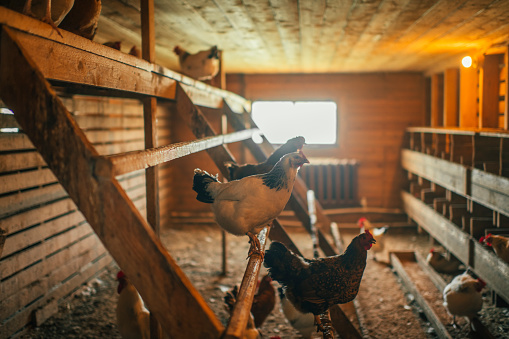
Having a business set up at home is both convenient and lucrative. It is easy to monitor, but it also reduces the time and investment required in commuting. For homeowners with large backyards, having a poultry farming coop is a viable option for more reasons than one. A backyard chicken coop requires a steady routine, little investment, and a labour-intensive business, ideal for large families living together. It also requires only an initial outlay, after which a poultry farm is a relatively self-sufficient business. If you are shifting homes and looking for a property that will bring your dream of poultry farming to life, here is an essential checklist to find the perfect property.
Local Regulations
If you’re searching for a new home to start a poultry farming business there, it is wise to check the local regulations and rules regarding the same. Many localities do not allow roosters. They also have policies for animal litter and noise levels. The presence of chickens also attracts rats, rodents and other predators, which can be a menace to neighbours. Remember, raising chickens translates to noise, activity and droppings. You don’t want to inconvenience the community and have them use different ways to deal with noisy neighbours. Instead, begin on the right note by checking if the neighbours are comfortable with it to avoid legal implications in the future.
Large Backyard
A chicken coop requires plenty of space for chickens to thrive and multiply. The foremost consideration for a property backyard to qualify for poultry farming is having ample space for a coop. A minimum of 3 sq km of space is needed for each chicken to roam around and thrive in the room. Add to this nesting boxes roosting perches and areas for food and drink. Additionally, chickens lay eggs that, in turn, hatch into more chickens. When buying a chicken coop, it is essential to factor in the future population of chickens arising from hatched eggs. Chickens also require ample space to roam around and stay healthy. What’s more, a backyard must be large enough to house the coop and allow for human access and passage in attending to and cleaning the coup. So for a property to qualify for poultry farming, it must have a large backyard that can cater to all of these requirements.
Mix Of Sun & Shade
Chickens require a healthy mix of sunlight and shade to thrive. If you’re looking at a property with a backyard for poultry farming, a dingy or dark backyard with little sunlight isn’t a good idea. Look out for ample space with plenty of fresh air and sunlight. Ideally, choose a property that isn’t surrounded by taller buildings. A well-structured coop offers plenty of open space for chickens to soak in sunlight. Go for a chicken coop design that offers plenty of walking space for chickens, well-designed nesting boxes, and ample roosting space.
Suitable Topography
A chicken coop must be located on sturdy hard ground without burrows, pits or uneven topography. Uneven ground can lead to water stagnation, a common cause of flies, mosquitos and insects. This can be detrimental to the overall health of the chickens. So ideally, choose a property with a natural slope or an utterly even ground to eliminate stagnant water. Soft mud and lowlands are also the perfect breeding area for chicken predators such as foxes, poisonous snacks and wild dogs to access the coop from the ground up. Many parasites thrive on the wet sand. Clean, hard ground with a patch of grass is the most suitable Topography for a chicken coop. Have a poultry farming expert come and invest in a prospective rental property with you to check its viability for your poultry farming business.
High Fencing
Chickens require plenty of space to roam around. Opening up the coop and allowing chickens to roam out of the coop during the day isn’t bad. For this, the property needs to be secured with a high fence. This ensures that no predators can harm the chicken. A high fence also prevents chickens from roaming out of the owner’s property. Common predators include foxes, wild dogs, pigs and cats. Check with the landlord about the possibility of increasing the height of the fence and even installing a wire mesh to ensure the safety of chickens.
Wrap Up
Having a backyard chicken coop is a lucrative business. A few checks and precautions at the planning stage can go a long way in ensuring the business’s success. Ensure you do your homework in choosing the most suitable property to kickstart your poultry journey!




 POSTED BY
POSTED BY 

